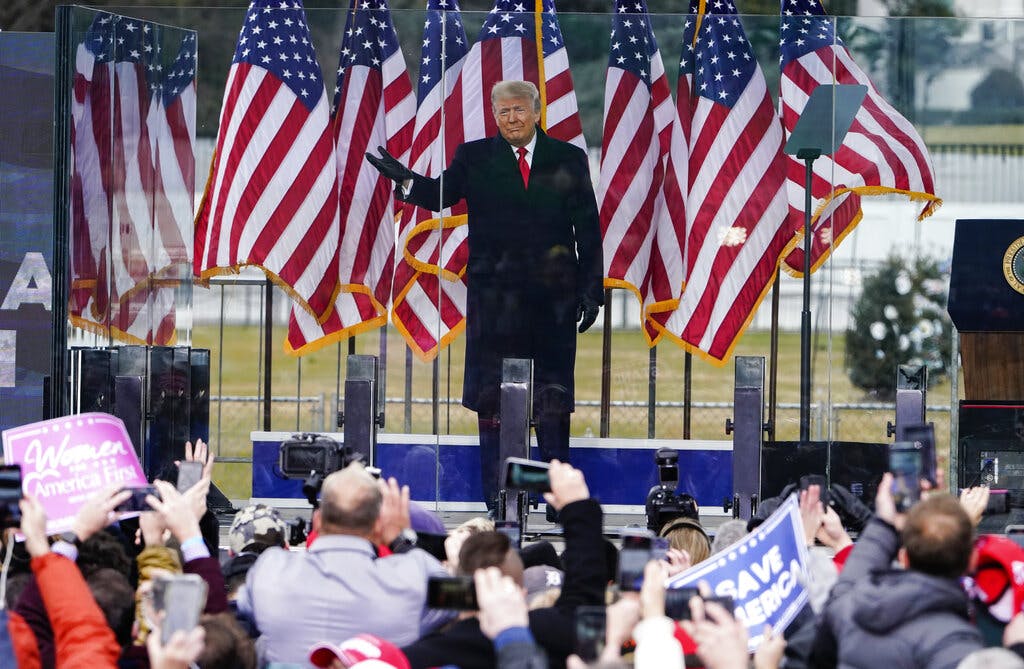Trump May Be Charged for a Second Time Under Law That Could Provide for the Death Penalty
Like the Espionage Act, a Civil War-era statute carries the ultimate penalty.

With an indictment in respect of January 6 expected to be handed up any day against President Trump, a law used to prosecute the Ku Klux Klan and child traffickers — and that sometimes carries the death penalty and was used against officers tried for killing George Floyd — is now a card in Special Counsel Jack Smith’s prosecutorial deck.
Please check your email.
A verification code has been sent to
Didn't get a code? Click to resend.
To continue reading, please select:
Enter your email to read for FREE
Get 1 FREE article
Join the Sun for a PENNY A DAY
$0.01/day for 60 days
Cancel anytime
100% ad free experience
Unlimited article and commenting access
Full annual dues ($120) billed after 60 days

